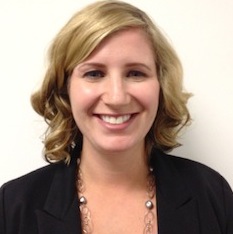A summary from a presentation at the UC Advising Conference,
hosted by UC Merced, Los Angeles CA
Friday May 1st, 2015
Written by: Danielle Mello
Most counseling professionals have probably experienced this before… you have a great idea for a program, project, or presentation, but then you remember- your workload is ridiculous and there is no time for anything extra! That was certainly the case for my colleague, Ethan Hutchinson (Lead Preceptor for Cowell College at UCSC), and I, but we submitted a proposal for the system wide UC Advising Conference to light a fire under our feet. The abstract began: “Chickering, Perry, Holland, Sanford… Oh my! Remember all the intricate student development theory you learned about at some point in your career? In graduate school perhaps? Ever wonder how those theories apply to the changing student body you advise today?...”
Having put together a “student development theory 101” presentation for our own campus a few months ago, we felt like something was missing. That missing piece, and thus the driving force to execute this project, was the vulnerability of many marginalized populations we see every day in our work. We conducted a literature review to explore the stages and developmental tasks found in various alternate identity development theories, extracted main ideas in direct conflict with traditional student development theory, and identified specific advising strategies for advisers and counselors to apply when working with vulnerable student populations.
In counseling and student affairs, we talk an awful lot about theory, but we don’t talk enough about the fact that most of these models were developed from research on white, affluent males attending college in the mid 1900’s. The stages, vectors, and positions in these theories look very different when applied to historically marginalized student populations and must be applied with caution. This is not to discount these theories altogether; we know they have value. However, when Chickering (1969) created Vector 2: “Developing social/interpersonal competence”, he probably didn’t consider what this task might look like from the perspective of a member of an oppressed group for whom many social interactions are tainted by a lack recognition of power privilege and oppression from members of a dominant group. So we must retool our advising strategies with marginalized students to account for the missing pieces.
This project served as a reminder of the importance of developing our own multifaceted framework, tapping into many different theories and considering the uniqueness of the student (or client) sitting before us. It was also a reminder that although it’s easy to say “there’s just no time” for endeavors that go beyond the requirements of our demanding workloads- it’s important that we advocate to our supervisors and administrators that there is value in this work, and it behooves us to carve out time for creative projects that promote professional, and personal development. This is the work that guides our counseling and advising strategies in supporting underserved clients and students in infrastructures that enact institutionalized racism. I encourage you to think about a project or program you have always wanted to do and ask yourself- can I make the time for this? How can I ask for the support I need to make room in my work? I’ll bet you’ll be glad you did.
*For a handout from this presentation including an overview of the models and specific advising strategies and/or a video of the entire presentation, please feel free to contact Danielle directly.


Danielle Mello is the Colleges Advising Coordinator at UC Santa Cruz. Having completed her Masters in College and Career Counseling from San Francisco State University, she has over 10 years of experience in counseling, advising, leadership, and program coordination in higher education. At UCSC she has served as an Academic Adviser, Lead Academic Preceptor, and Lead Adviser at the Career Center. Her pre-UCSC work includes career counseling and advising for community college and first generation students.
email: dmello@ucsc.edu